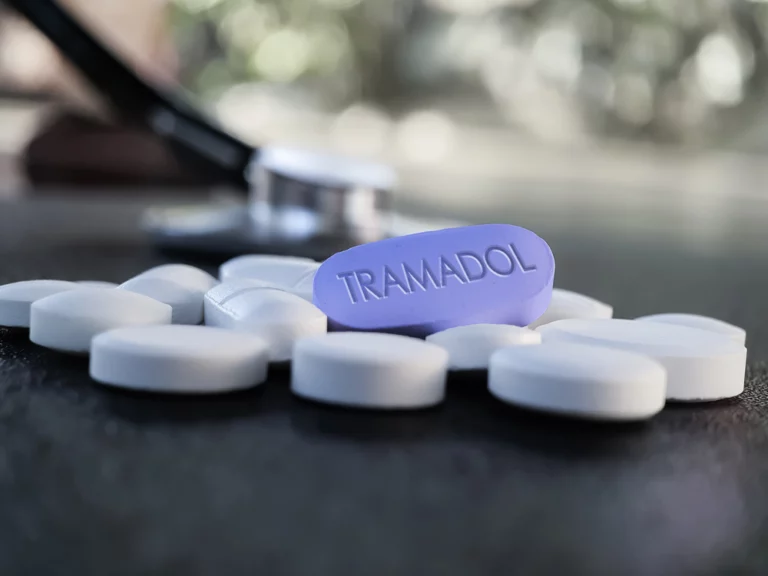What is Vivitrol?
Substance abuse and addiction affect millions across the United States. Fortunately, there are a number of therapies and treatments available to address these issues and disorders, including medication-assisted treatment. For many, adding a medication into their recovery can help combat the desire to return to an abused substance. One of the most useful and most commonly used medications of this kind is Vivitrol.
Vivitrol Explained
Vivitrol is the brand name for a drug called naltrexone. It can be used in conjunction with an alcohol or opioid recovery program to help those with an alcohol or opioid addiction maintain their sobriety. Typically, Vivitrol is delivered to a person through a monthly, intramuscular injection. However, there are oral tablet versions of naltrexone as well.
How Does Vivitrol Work?
By using naltrexone, Vivitrol helps those with alcohol or opioid addictions by blocking the sense of euphoria and sedation that alcohol and opioids typically cause in a person’s central nervous system. In doing so, Vivitrol essentially blocks the effects and high one receives from these substances, making them useless.
Vivitrol is especially effective for those living with an opioid addiction. The naltrexone in Vivitrol acts as an opioid antagonist. This means that naltrexone attaches itself to the opioid receptors in an individual’s body and blocks them. By blocking them, the opioids in drugs like heroin, oxycodone, codeine, morphine, and more are unable to bind to the receptors. Without binding, the effects of opioids cannot occur in the body. This makes opioid use unfulfilling and pointless, which often helps individuals with opioid addictions from relapsing.
Side Effects of Vivitrol
Like most other drugs, Vivitrol can cause some side effects in users. The side effects of Vivitrol and naltrexone in general can include:
- Headache
- Restlessness
- Nervousness
- Exhaustion
- Problems sleeping
- Muscle and/or joint pain
- Upset stomach
- Diarrhea
While it is not common, Vivitrol can also cause reactions at the injection site, eosinophilic pneumonia, and liver toxicity.
Using Vivitrol for Alcoholism
Back in 2006, Vivitrol was approved by the Food and Drug Administration (FDA) to be used to help prevent relapses in individuals living with alcohol use disorder – also known as alcoholism. Unlike other medications at the time, the naltrexone present in Vivitrol was able to minimize an individual’s cravings for alcohol by eliminating the effects of alcohol. Before this, other drugs like disulfiram tried to accomplish this by making those who consumed alcohol sick, which was a much less effective strategy for those addicted to alcohol.
By blocking the effects of alcohol, Vivitrol makes avoiding alcohol use and abuse easier. When consumed, alcohol causes a release of endorphins, essentially making an individual feel good. For many, they want to continue to drink in order to keep feeling good or feel even better. However, the naltrexone present in Vivitrol blocks the endorphins from binding to receptors, eliminating the feeling of pleasure and happiness usually associated with consuming alcohol. Without the ability to provide any sort of pleasure for a user, alcohol use and abuse becomes useless, making it easier for an individual to remain sober.
Using Vivitrol for Opioid Addiction
Later in 2010, Vivitrol was approved by the FDA for use in treating individuals with opioid addictions. Although it was initially used by those with alcohol addictions, further study into the effects of naltrexone found that it can also help combat opioid cravings.
When used by alcoholics, naltrexone blocks endorphins released by alcohol consumption from binding to receptors in the body. However, when used by those with opioid addictions, naltrexone blocks opioids from binding to opioid receptors. In doing so, naltrexone stops the effects of opioids from happening, making any and all opioid drugs ineffective for those who have been injected with naltrexone.
How to Start Using Vivitrol
Vivitrol is not a widely available drug. It is unlikely one will find and purchase it from their local pharmacy. Vivitrol must be prescribed by a doctor and administered by a medical professional via intramuscular injection. This can be done at a number of medical facilities; however, Vivitrol is most often prescribed and given to patients at addiction treatment centers and rehabilitation facilities.
Detox Before Using Vivitrol
Even if Vivitrol is prescribed or recommended to an individual living with an alcohol or opioid addiction, they must go through the detoxification process before they can begin using it. Detoxification or a detox is a normal part of any kind of addiction treatment. This process consists of a person’s body processing and removing toxic substances like alcohol and opioids from their system. Once complete, a person has become sober and moved beyond much of the physical aspect of their addiction.
After detoxing, an individual can begin to receive injected doses of Vivitrol to help prevent a relapse. Vivitrol cannot be administered to a person with an alcohol or opioid addiction until they have fully detoxed.
Vivitrol: An Aid, Not a Cure
Although using Vivitrol is undeniably helpful for many and often leads to a more successful recovery, it is a method of assisting one’s recovery, not a cure for addiction entirely. When taken, Vivitrol eliminates the effects of alcohol and opioids. This typically makes these substances less desirable for those addicted to them. However, it does not guarantee that the desire to consume them will disappear. Vivitrol also cannot stop a person from becoming addicted to other substances. Because of this, Vivitrol and other forms of naltrexone should be used alongside other forms of addiction treatment such as addiction counseling at a rehab facility.
Oasis Recovery Can Help
If you or a loved one is living with an addiction to alcohol, opioids, both, or another substance, help is available in your area! At Oasis Recovery, our team of experienced addiction specialists provide multiple kinds of addiction treatments and therapies. By applying specialized treatments and therapies, our team can help address the root causes of an alcohol or opioid addiction and help those living with them enter lasting recovery. Contact us today to learn more!











